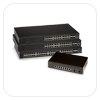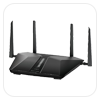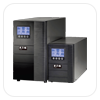
Businesses are always struggling with the same question: How much money do you invest in security, and is the cost worth the security you are buying? One such feature of sound posture for security is the firewall, the first point of defense against hostile intrusions. Though software firewalls or even router-built-in firewalls might appear to be budget-friendly, is a purpose-built hardware-based firewall truly worth its price, or is it an expense to the budget?
This entry explores the issue of cost versus security in choosing to buy a hardware-based firewall and what the cost (investment) entails versus the rewards and risks of taking a less-than-optimal security stance.
Understanding the Costs:
The hardware firewall’s initial price can be expensive, particularly for small and medium-sized business (SMB) firms with limited budgets. These costs can include:
-
Purchase Price:
Hardware firewalls come at a variety of price points based on functionality, throughput, or the size (of users specific to firewalls) of the hardware firewall, and enterprise-level firewalls that include the greatest range of features also represent the largest cost.
-
Configuration and Management:
Many new hardware firewalls are designed for simplicity and are easy to configure. Initial configuration and ongoing management, however, may require a dedicated IT person or outsourced support for ongoing operational expenses.
-
Possible Upgrades:
Eventually, your company may simply outgrow the firewall and status quo, and have to upgrade to a more advanced firewall, and incur additional expense.
Many people consider built-in router firewalls or software firewalls to be “free” or “cheap,” so there seems to be a significant cost with a hardware firewall, and are confused to ask if the security is worth spending the money!
The Security Proposition: What is Hardware Firewall Worth?
To figure out the value proposition, let’s look at how security will be enhanced with a hardware firewall compared to its cheaper alternatives:
-
Dedicated Processing Power:
Software firewalls are applications that must share computing resources with the system/application on which you are running the firewall. Hardware firewalls are dedicated security appliances with dedicated processing capabilities specifically for accessing network security. They inspect and filter threats at high speeds without consuming server or workstation system performance. The dedicated processing power is extremely important for processing more advanced attacks and volumes of network traffic.
-
Strong Operating Systems:
Hardware firewalls normally run on proprietary operating systems that were built with security in mind. These will be much less likely to have vulnerabilities than common operating systems used by software firewalls.
-
More Control and Features:
Hardware firewalls generally have many more ‘advanced’ security features such as deep packet inspection (DPI), intrusion prevention systems (IPS), application control, content filtering, and some have VPN capabilities. These features provide a much more comprehensive level of security against modern, sophisticated threats than basic firewall functionality will provide.
-
Network Perimeter:
Hardware firewalls are at your network perimeter, and they can be the first line of defense against external threats before they reach your internal network and individual devices. This central point of control makes security management easier and gives you a higher-level perspective on network traffic.
-
Resistance to Attack:
Because they are separate appliances, hardware firewalls will most likely be resistant to tampering from malware or attackers who may have compromised an endpoint on your network.
The Cost of Insecurity: What You’ll Lose:
Ultimately, in assessing whether the cost of the hardware firewall is “worth it” or not, businesses need to consider the financial and reputation costs of a security breach.
-
Financial Losses:
Data breaches may result in steep financial losses from regulatory fines (for example, GDPR), legal fees, remediation costs, and/or loss of intellectual property or sensitive customer data.
-
Reputational Harm:
Security breaches have the potential to inflict serious reputational harm on a company, which leads to loss of consumer trust and ultimately loss of business! If damage occurs, reputational remediation can take a long time and can be an ongoing task.
-
Operational Disruption:
Cyberattacks (e.g., ransomware) can halt business operations, resulting in downtime, loss of productivity, and loss of income.
-
Legal Liabilities:
Depending on the compromised data, businesses may be liable for lawsuits and legal liabilities arising from a security breach.
When taking into consideration the potential loss caused by these factors, the purchase of a properly configured, properly sized, hardware-based firewall begins to look less like an expense and more like a category of insurance – a proactive step to mitigate what is potentially far greater reputational and financial loss.
The Sweet Spot: The Worth of a Properly Configured, Sized, Dual Firewall:
There is no hard, fast, return on investment (ROI) answer to the “worth” of a hardware-based firewall (or dual firewalls). Instead, it depends on the need, size, and risk profile of your organization.
-
Small Businesses:
The initial investment may seem expensive. For small businesses that have certain very sensitive customer information or work online, a hardware firewall can be highly beneficial for them. If there’s a data breach, the damage could end up costing much more than the price of the firewall.
-
Medium-Sized Businesses:
Larger, more intricate networks and greater amounts of data moving through the network call for hardware firewall functionality and performance at a higher level. It’s an expense worth considering about, providing better security grade and helps prevent the possibilities of a huge loss through data loss.
-
Large Businesses:
It is a must for large businesses to have a hardware firewall infrastructure. The highly large-sighted businesses face immense demands for performance and security that hardware firewalls can provide.
Conclusion
In conclusion, while the upfront cost might seem like a problem, viewing a hardware firewall as an investment in the security and longevity of your business offers a more accurate perspective. In today’s threat landscape, can you truly afford not to invest in a robust first line of defense? The peace of mind and the mitigation of potentially devastating risks often make the cost of a hardware firewall a sound and prudent investment for businesses of all sizes. The balancing act between cost and security often tips in favor of investing in robust protection when the potential cost of failure is so high.
















































































































